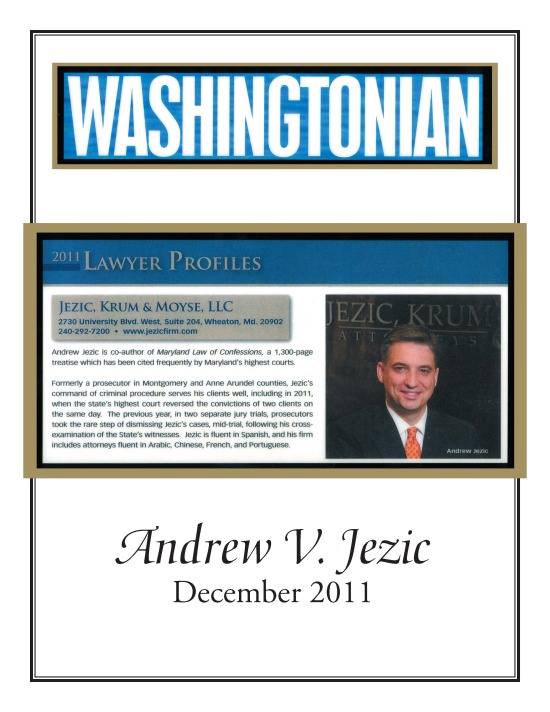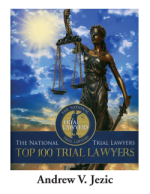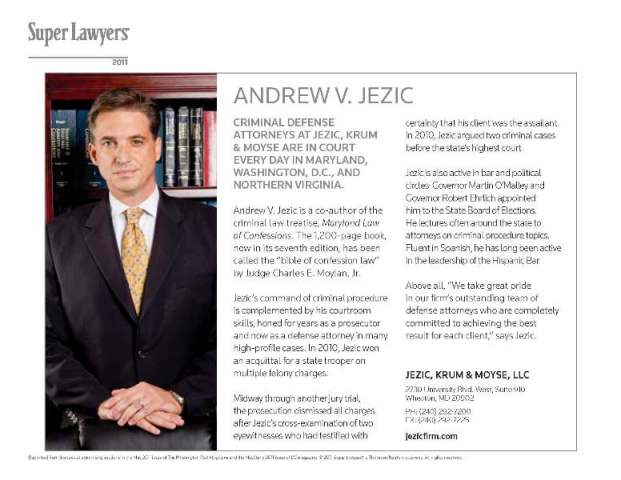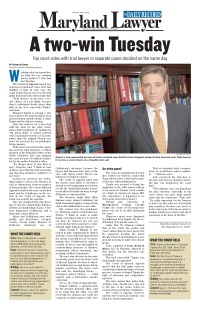Posted 12/16/10
A former Wilde Lake woman who pleaded guilty to voluntary manslaughter after fatally stabbing her live-in boyfriend more than 15 years ago has been granted a retrial.
Tatyana Kogan, 42, was sentenced to six months in prison in 1995 after her defense attorney convinced a Howard County Circuit Court judge that Kogan lived in constant fear of her abusive boyfriend and that she stabbed him to death with a steak knife in order to defend herself during a domestic dispute.
On Oct. 11 1994, Kogan, then 26, placed a panicked phone call to 911, informing the dispatcher that she had just “killed her boyfriend” and “stuck a knife in his heart,” according to a March 9,1995 article in the Howard County Times.
Officers arrived on the scene to find Andrei Gordon, 31, still alive, clutching his chest in pain and bleeding severely.
At the time, Kogan pleaded guilty to manslaughter.
Now, however, she has been granted a retrial after asserting that she did not realize the plea would affect her immigration status. She and her new defense attorney, Andrew V. Jezic, also say that she entered the plea under emotional distress because her boyfriend’s associates had threatened her young daughter’s safety.
Kogan, originally from the Republic of Belarus, a small Eastern European country, has been a legal resident of the U.S. since 1990.
She owns a consulting firm that helps American companies sell products to Eastern Europe.
In 2007, she received a notice from the Department of Homeland Security stating that she was not allowed to travel abroad, which she asserts is essential for her profession, and that she might face removal charges as a result of her guilty plea, according to court documents.
“The reason that she took this compromise deal was because she was not in the right frame of mind and did not get good advice,” Jezic said. “She had every right to do what she did and she would have been acquitted had the case gone to trial.”
Prosecutors oppose retrial
In a March decision, Circuit Court Judge Diane Leasure permitted the retrial, but last week the Howard County State’s Attorney’s Office appealed her decision.
“We don’t have any evidence anymore; its been destroyed. This case is over; it’s been over for 17 years.” said state prosecutor Todd Taylor.
Taylor said the state destroyed the evidence after Kogan completed her probation. He said the lack of evidence puts an unfair burden on the state.
“I have no evidence to put on, so it would be an automatic not guilty,” he said.
Jezic disagreed. He said witness testimony would allow the state to present the necessary evidence.
“Most, if not all, of the key investigators of the case are alive and live in Maryland,” Jezic said.
He said he is confident Leasure’s decision to allow a retrial will hold up under the scrutiny of an appeals court.
According to reports at the time, Kogan told police that she awoke in the early morning hours of Oct. 11, 1994 to the sound of her 4-year-old daughter screaming. She told authorities that she went downstairs and discovered Gordon hitting the child because she had thrown away a piece of pie. She said Gordon then proceeded to hit her in the face, stomach and chest.
At that point, Kogan said she picked up the knife and stabbed Gordon.
‘Vicious career criminal’
During her sentencing hearing, medical experts testified that Kogan suffered from spousal abuse syndrome and that Gordon had mentally and physically abused her.
Other witnesses testified that Gordon was a “vicious career criminal” and “a violent and abusive individual, as well as a prominent figure in the Russian underworld,” according to court documents.
The defense argued that Gordon was suspected in two murders, including one in Italy that was “believed to be over a ‘clash of interests linked to the black market,’ ” court documents state.
One neighbor, who testified at the hearing, told the Howard County Times that she had witnessed Gordon striking Kogan.
“I saw it. He hit and kicked her in the stomach,” the neighbor said at the time.
At the sentencing hearing, Circuit Court Judge Dennis M. Sweeney sentenced Kogan to about six months in prison — the time she had already served while awaiting court hearings. According to court documents, he said he was sufficiently convinced that Gordon was violent toward Kogan.
“I think that it is fairly clear, and I don’t think that the state argues to the contrary, that this was a relationship in which violence was a specter, if not a frequent visitor, both against Ms. Kogan and … the child in this case,” Sweeney said.
Jezic agreed, arguing that his client was a constant victim of her boyfriend’s abusive temper, and she acted in self-defense when she stabbed him.
“She has been innocent from the beginning,” he said. “She was the victim.”







